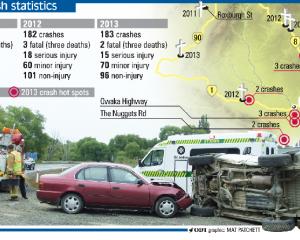One in five drivers has admitted to falling asleep at the wheel - and the problem is costing more than ever.
Driver fatigue insurance claims cost the industry about $4.8 million a year and the Automobile Association says that figure is rising.
The AA Insurance Drivers Index interviewed 3550 Kiwi drivers and found 26% of male drivers and 15% of female drivers admitted to nodding off while driving.
AA head of operations Martin Fox said the upward trend in driver fatigue claims was concerning.
"Drivers should recognise the warning signs before tiredness settles in and pull over to rest and refresh. As we head into the holiday period, where a lot of people will be driving long distances to see family and friends, motorists need to be aware of the dangers of fatigue," he said.
Drivers who made the most insurance claims after fatigue-related car crashes this year were those aged 18 to 29, making up 10.6% of claims.
That was closely followed by men aged 30 to 39 at 10.4%. The third largest group was women aged 40 to 49.
Men over the age of 70 made the most expensive claims, averaging $11,787.
AA Insurance customer records showed men were more likely not to admit being tired and were more likely than women to have an accident resulting from falling asleep at the wheel.
The AA warned being sleepy behind the wheel affected the ability to drive in the same way drinking alcohol could because it impaired vision and increased reaction times.
Fatigue claims were also common among shift workers and claims were also received from drivers suffering from the flu or feeling sick.
"Everyone is susceptible to fatigue, especially when driving late at night or early in the morning. You may be suffering from fatigue if you have trouble focusing on the road, are continually yawning or daydreaming while driving," Mr Fox said.
Drinking alcohol can also increase the effects of fatigue, as can medication that makes you drowsy.
Safety tips
• Take regular rest breaks when driving long distances.
• Get a good night's sleep before going on the road.
• Avoid alcohol as this can increase the effects of fatigue.
• Share the driving where possible.
• Don't drive at times you're usually sleeping.
• Be aware of medication that may affect your ability to drive.
• Recognise the signs of drowsiness.
• Pull over if you feel drowsy or lose concentration.
- Amelia Wade



